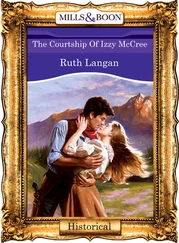Maybe all this sounds kind of naïve to us, kind of dated. We’re much more used to the idea that we’re full of all manner of unpleasant impulses, aren’t we? What Lottie is experiencing, however, is more than just a pious, sheltered girl realizing her own impure thoughts. She’s undergoing a recognition — a recognition of intent so intense it’s for all practical purposes equivalent to having committed the acts themselves. The ground has fallen out from underneath her. She realizes that the words her other-self is saying are coming from her mouth, too. Her mind is becoming brittle, freezing over the way a pond does, her thoughts becoming sluggish, struggling through an increasingly icy medium. Only the horror gripping her seems capable of surviving the cold, moving freely within her. It trundles along like some kind of small, polar beast, tireless, persistent, heedless of the plummeting temperature. Once the process is complete and her mind has frozen, only that small beast will be left, only the horror.
Clara stays away from the house the entire night, refusing Italo and Regina’s offer of their bed in favor of sitting up at their kitchen table when everyone else has turned in for the night, smoking away the hours. From what little I’ve heard of her, she strikes me as a woman prone neither to regret nor worry, but on this night I suspect she must taste a little of both. She must think about the house she was mistress of in the old country, in the days before everything went wrong for her husband. She must think about that old life, and the distance between it and this new one. Does she remember the first time Lottie was sick, truly sick, and she sat up with her? How could she not?
Returning home with Gretchen and Christina the next morning, Clara is met at the door by Rainer. His face is drawn with exhaustion, but his eyes are alive with a light his wife has not seen in them previously. This light doesn’t seem to radiate from within his eyes so much as to be reflected upon them, as if Rainer is gazing at a source of illumination invisible to everyone else. Clara doesn’t like the look of this light. It isn’t the warm glow of the sun; it’s the cold glare of lightning. Over the course of their marriage, Clara has been afraid of Rainer on one or two occasions, instances when his temper flared so bright she was sure it would push him to violence. In all that time, she’s never been afraid for him, not once, not when he told about his secret studies and the terrible cost they took, not when he walked out the door to begin the work as a stonemason he had absolutely no training or, so far as she could see, no real inclination for. She has faith in her husband, in his fundamental ability, despite a persistent absent-mindedness, to take care of himself. It’s one of Rainer’s qualities she likes the best, the way he encourages confidence in himself. Now, seeing that dead light playing on his eyes, she pictures Rainer as a man promenading in the middle of a thunderstorm, carrying a long metal pole high in his hands as lightning shatters trees around him. The hairs on the back of her neck stand up as Clara trembles at what she may have pushed him to. She might lose not only her daughter, she realizes, she might lose her husband as well. But what else is there to be done? Putting on a brave face, she hustles the girls into the house past their father, telling them to hurry, they’re almost late for school. When they’re inside, she looks into Rainer’s strange eyes and says, “Well? You’ve succeeded?”
“We’ll see,” is his answer. He walks past her, towards George and Helen’s house. In his right hand, he’s carrying one of the good dinner knives, the silver ones, that Clara packed away in the trunk at the foot of their bed. The girls, who have reappeared with their school things, stare at her. Usually their father is full of hugs and kisses for them. Who, their faces ask, is this? Clara shoos them on their way. She sees them glance back as they go, watching her watching Rainer.
He strides up to the front door of the house next door. He raises his right hand, and begins to score the door with the good dinner knife, his arm moving in long arcs and slashes. Clara can hear the metal tearing wood, but because the houses are positioned the same way, can’t see the marks he’s making. After watching him for a moment, she guesses that he’s writing something. His arm drops to his side. He says something Clara can’t hear. Then he moves to his left, around to the side of the house hidden from Clara’s view. She notices that he carries the knife in close to his chest, point-down. Wishing she hadn’t smoked her last cigarette at Italo and Regina’s, she watches the back of the neighboring house, where she assumes Rainer will appear once he’s completed whatever he has to do on the far wall. Sure enough, a minute or two later, here is Rainer, the knife held to his chest point-up. He marks the house’s rear wall, says something else that Clara can’t hear but that, from the way his lips move, she thinks is different from what he said at the front door, and proceeds to the last remaining wall. His back to his wife, Rainer sweeps the knife over the wall in the overblown gestures of a circus ringmaster. Clara’s assumption is correct. He’s writing, letters or maybe words in an alphabet she doesn’t recognize, swirling arabesques that spin and loop and fall back on themselves, so that she can’t tell where they begin or end. She stares at them, and they move, writhing on the wood in a movement she feels on her eyes. Crying out, Clara jerks her head back, rubbing furiously at her eyes, where she can still fell those shapes squirming under her lids. All at once, the sensation stops, and when she removes her hands from her face Rainer is back in front of their neighbor’s house, the knife held high overhead. The picture Clara had of him holding a metal pole up into a thunderstorm flickers across her mind’s eye. Rainer snaps his arm down, hurling the knife into the ground at his feet, where it sticks vibrating, the light racing up and down its sides.
That is that. Leaving the good dinner knife stuck in the dirt, Rainer walks back to Clara standing in the doorway. For all that he’s just performed what looks to his wife very much like sorcery, there’s a spring in his step she hasn’t seen there for a length of years, and not ever in this country. He used to walk this way coming home from the University, sometimes. Clara would catch sight of him from the parlor windows and know he’d accomplished something significant that day, solved a particularly difficult problem, won an especially challenging argument. There’s a kind of bounce to that step that’s equal parts joy and confidence, with a sprinkle of arrogance. Witnessing it here and now fills Clara with sudden nostalgia, nostalgia tinged with unease. As Rainer draws closer, so Clara’s nervousness grows. The unearthly light has spread, widening its glow to encompass his cheeks and forehead. The more she sees of it, the less she likes it.
When Rainer has walked past her into the house, Clara asks him, “What did you do?”
“I made a box,” Rainer says, almost grinning as he does.
“Don’t speak in riddles,” Clara snaps. “What did you do?”
That half-grin refuses to leave his mouth. “I trapped her,” he says.
“The woman? Helen?”
Rainer nods. “She’s not a woman, anymore.”
“I know that,” Clara says. “I don’t care what she is, as long as this helps Lottie. Will it?”
“It will prevent her from becoming worse,” Rainer says. “Lottie has been enchanted—”
“I thought you said she was poisoned,” Clara says.
“Another way of saying the same thing,” Rainer says. “I have a better understanding of what afflicts her, now. She is staring into a mirror from which she cannot look away. What I have done is like throwing a cloth over the mirror. She still has felt the mirror’s effects, though; she still is under its spell. It is like the Snow White story we used to read her when she was a girl. Even after the poisoned apple has fallen from Snow White’s hand, there is the piece of it stuck in her throat. She needs the prince to loosen it.
Читать дальше












